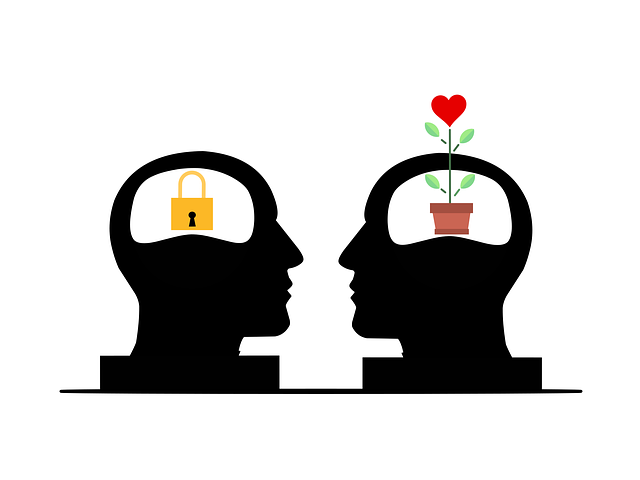Stress management workshops tailored for young adults and first responders are crucial in addressing their unique mental health challenges. These workshops, focusing on emotional healing, stress prevention, and coping techniques, foster resilience and well-being. Tailored approaches include mindfulness, CBT for young adults, crisis intervention for first responders, and community outreach. Engaging facilitators create interactive environments, integrating practical exercises for emotional regulation. Success is measured through participant satisfaction, stress level changes, and long-term mental health resilience, with ongoing support through education, peer networks, and therapy access.
Stress management workshops play a crucial role in mitigating the adverse effects of stress on young adults and first responders. This article delves into the comprehensive guide on organizing such workshops, addressing specific needs of these audiences. We explore topics like understanding stress impacts, structured workshop approaches, tailored design, engagement techniques, and measuring success for continuous wellbeing. By implementing these strategies, organizations can provide effective therapy for young adults and first responders, fostering resilience in the face of stress.
- Understanding Stress and Its Impact on Young Adults and First Responders
- The Role of Workshops in Stress Management: A Structured Approach
- Designing Effective Stress Management Workshops for Specific Audiences
- Facilitation Techniques to Enhance Workshop Engagement
- Measuring Success and Long-Term Support for Continuous Wellbeing
Understanding Stress and Its Impact on Young Adults and First Responders

Stress is a prevalent issue among young adults and first responders, often stemming from demanding lifestyles, high-pressure environments, and unique challenges they face daily. These individuals frequently juggle academic or career pressures, personal responsibilities, and the weight of their roles in society. Such constant exposure to stress can lead to adverse effects on mental health, including anxiety, depression, and burnout.
Understanding the impact of stress on this demographic is crucial for developing effective therapy and support systems. Many young adults struggle with emotional regulation, making them susceptible to rapid mood swings and heightened distress levels. Similarly, first responders often deal with traumatic events, which can disrupt their emotional healing processes and contribute to long-term mental health issues. Early intervention through workshops focused on stress management, depression prevention, and emotional healing can be transformative for these groups, fostering resilience and promoting overall well-being.
The Role of Workshops in Stress Management: A Structured Approach

Workshops play a pivotal role in stress management, offering a structured approach to help individuals cope with daily pressures. For young adults and first responders, who often face unique challenges, these sessions can be game-changers. They provide a safe space to learn and practice techniques tailored to their specific needs. Through interactive activities, participants gain insights into their stress triggers and discover effective strategies to manage them.
Structured workshops facilitate the development of public awareness campaigns that educate people on positive thinking and stress management. By fostering open discussions and sharing best practices, these platforms empower individuals to take charge of their mental well-being. This structured approach, whether focused on therapy for young adults or targeted at first responders, can significantly enhance resilience and overall stress resilience in the face of demanding careers and personal struggles.
Designing Effective Stress Management Workshops for Specific Audiences

When designing stress management workshops for specific audiences, tailoring content to meet unique needs is crucial. For young adults, workshops should incorporate engaging activities and peer-to-peer sharing, focusing on building resilience through life skills development. Therapy techniques like mindfulness meditation and cognitive behavioral therapy (CBT) can be effectively integrated to help them manage stressors related to academic or professional pursuits.
On the other hand, for first responders, workshops must address the specific challenges they face, such as trauma exposure and high-stress work environments. Incorporating crisis intervention guidance and debriefing sessions is essential. Mental wellness coaching programs development can enhance their coping strategies and emotional regulation skills, ensuring they prioritize self-care amidst demanding schedules. Community outreach program implementation can further bolster access to these critical workshops, fostering a supportive network within the community.
Facilitation Techniques to Enhance Workshop Engagement

Engaging workshop participants is a critical aspect of effective stress management sessions, especially when catering to specific groups like young adults and first responders. Facilitators can employ various techniques to create an interactive environment that promotes active learning and personal growth. One powerful tool is utilizing open-ended communication strategies that encourage dialogue and peer support. This fosters a sense of community and allows participants to share their unique experiences, fostering emotional connections and boosting engagement.
Additionally, incorporating practical exercises focused on emotional regulation can significantly enhance the workshop’s impact. These activities might include mindfulness practices, breathing techniques, or cognitive reframing exercises tailored to address the specific stressors faced by young adults and first responders. By integrating these strategies into the mental wellness podcast series production of the workshops, facilitators can offer valuable tools for self-care and stress mitigation, ensuring a more profound and lasting impact on participants’ emotional regulation.
Measuring Success and Long-Term Support for Continuous Wellbeing

Measuring success in stress management workshops for first responders is a multifaceted process. It involves assessing both short-term outcomes, such as participant satisfaction and immediate changes in perceived stress levels, and long-term impacts on mental health and resilience. Effective workshops should not only provide immediate relief but also equip individuals with enduring strategies for coping with stress and adversity. This includes the integration of empathy building strategies within program design to foster supportive environments where first responders feel understood and valued.
To support continuous wellbeing, organizations should consider implementing Mental Health Education Programs that focus on cultivating inner strength development. Regular follow-ups, peer support networks, and access to specialized therapy for young adults, particularly tailored for first responders, are crucial components of long-term success. By combining robust evaluation methods with a commitment to ongoing support, these workshops can help participants maintain mental health balance even in the face of high-stress jobs.
Stress management workshops play a pivotal role in empowering young adults and first responders with effective tools to combat stress. By providing structured, audience-specific sessions that employ engaging facilitation techniques, these workshops offer a holistic approach to wellness. Through measurable outcomes and ongoing support, they foster continuous wellbeing, ensuring participants can navigate life’s challenges resiliently. This tailored therapy for young adults and first responders is a game-changer in promoting mental health and building durable coping mechanisms.














